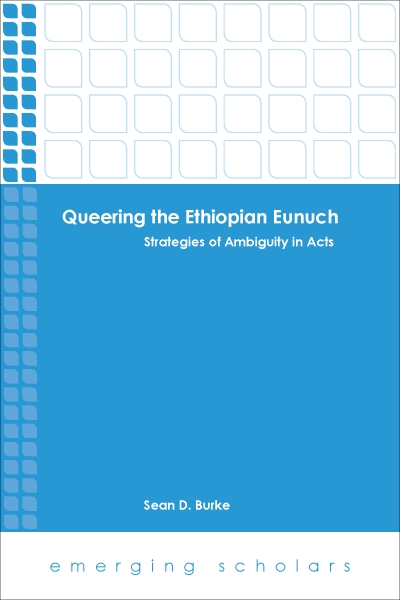Queering the Ethiopian Eunuch: Strategies of Ambiguity in Acts
Were eunuchs more usually castrated guardians of the harem, as florid Orientalist portraits imagine them, or were they trusted court officials who may never have been castrated? Was the Ethiopian eunuch a Jew or a Gentile, a slave or a free man? Why does Luke call him a “man” while contemporaries referred to eunuchs as “unmanned” beings? As Sean D. Burke treats questions that have received dramatically different answers over the centuries of Christian interpretation, he shows that eunuchs bore particular stereotyped associations regarding gender and sexual status as well as of race, ethnicity, and class. Not only has Luke failed to resolve these ambiguities; he has positioned this destabilized figure at a key place in the narrative—as the gospel has expanded beyond Judea, but before Gentiles are explicitly named—in such a way as to blur a number of social role boundaries. In this sense, Burke argues, Luke intended to “queer” his reader’s expectations and so to present the boundary-transgressing potentiality of a new community.
$49.00
